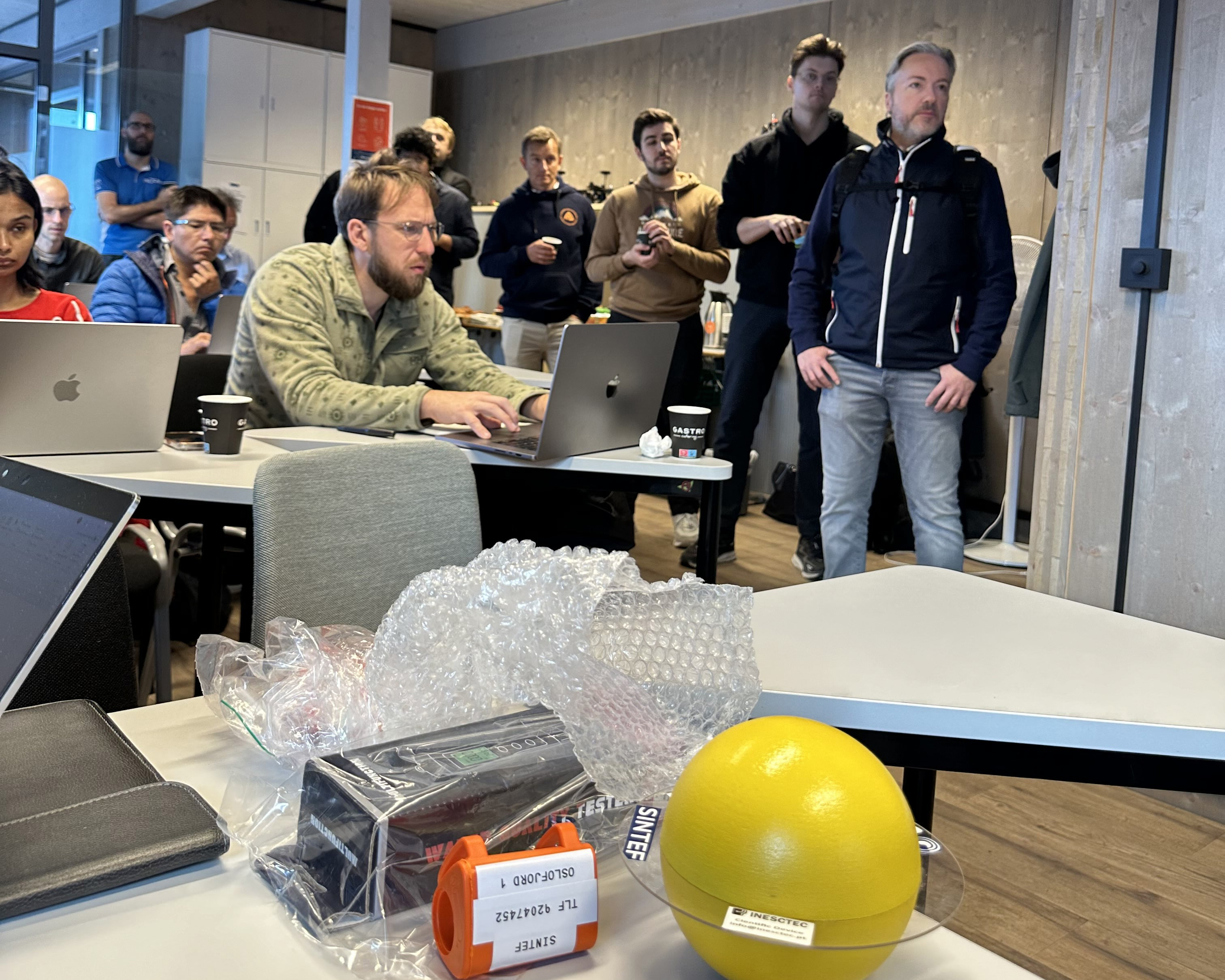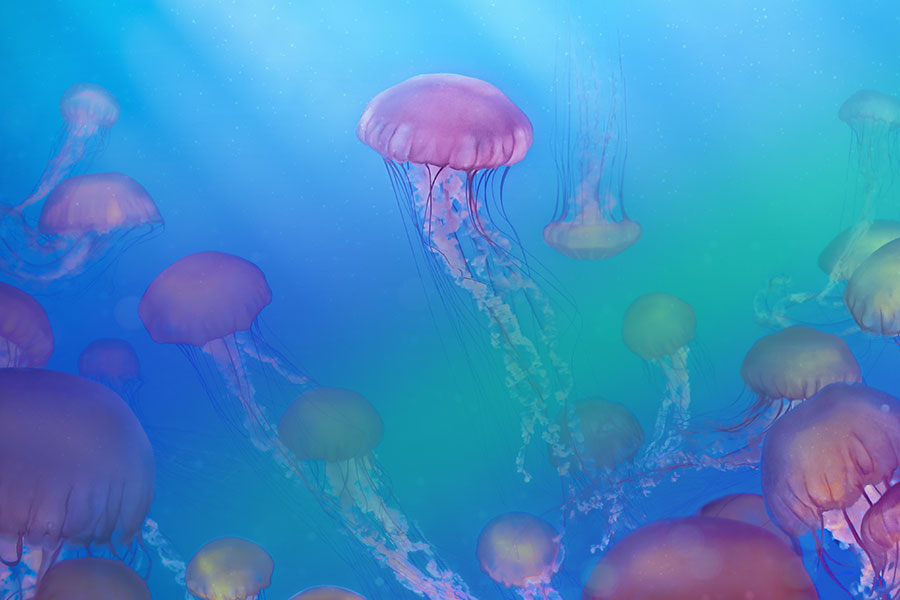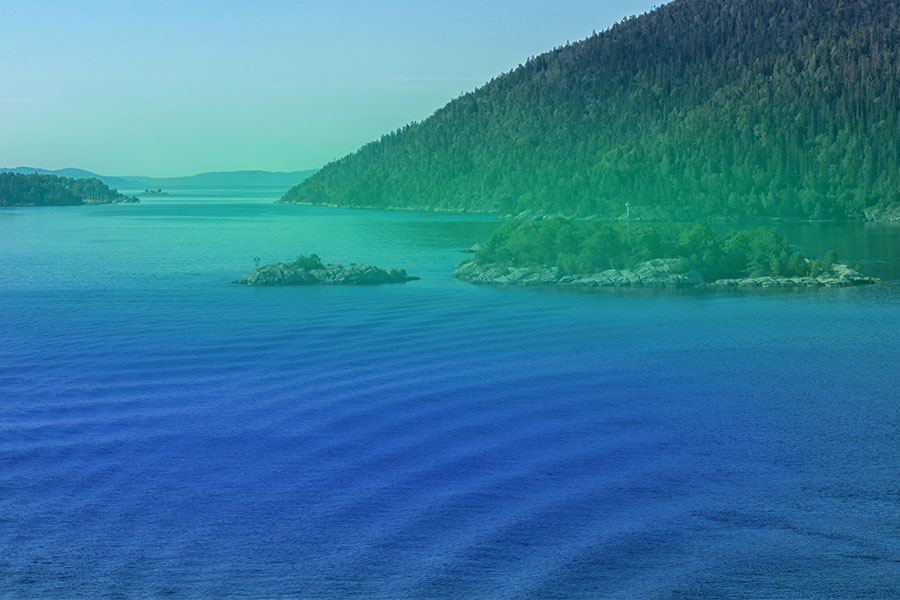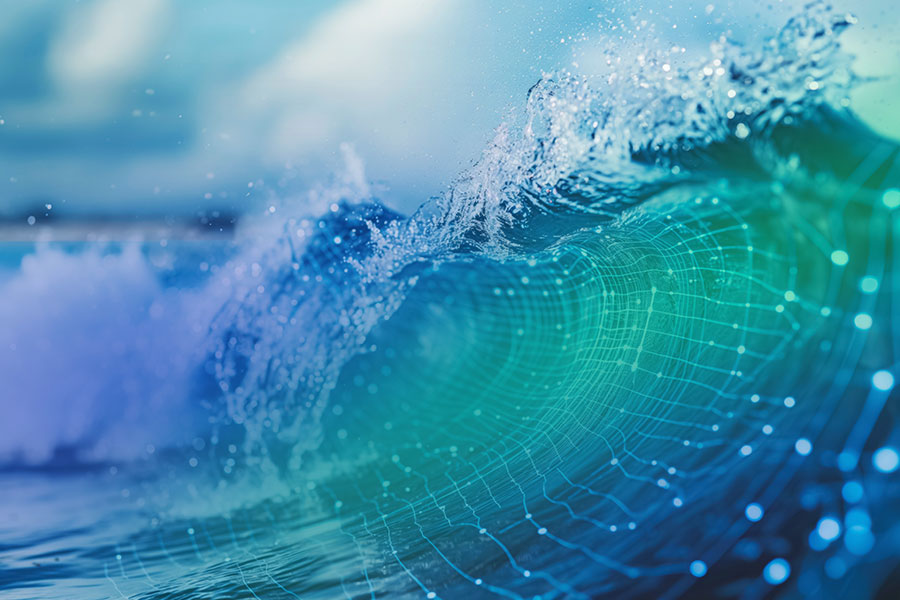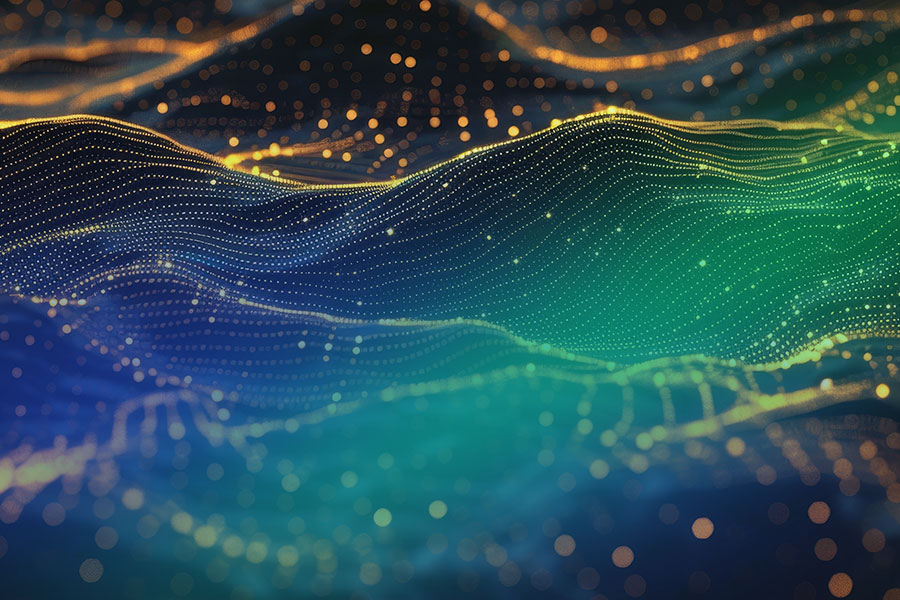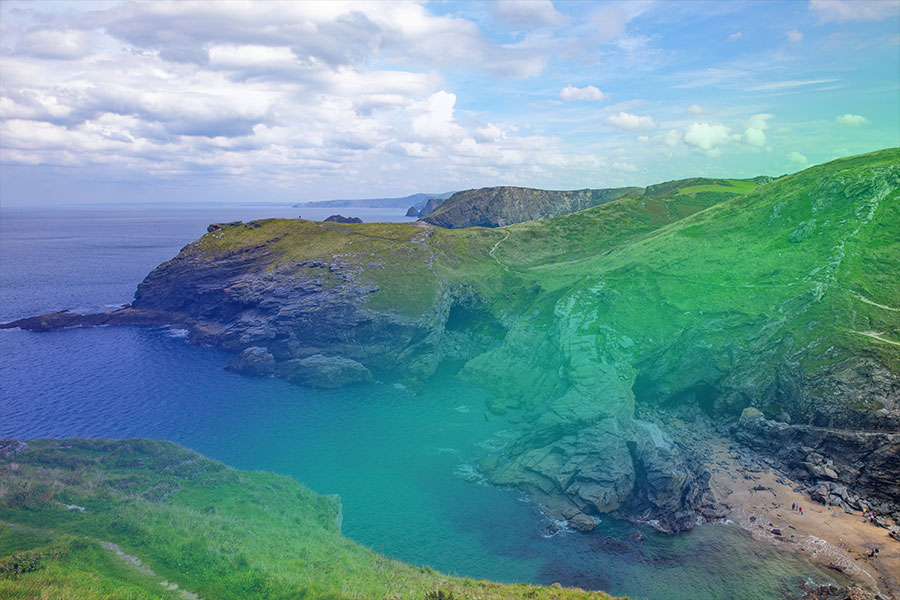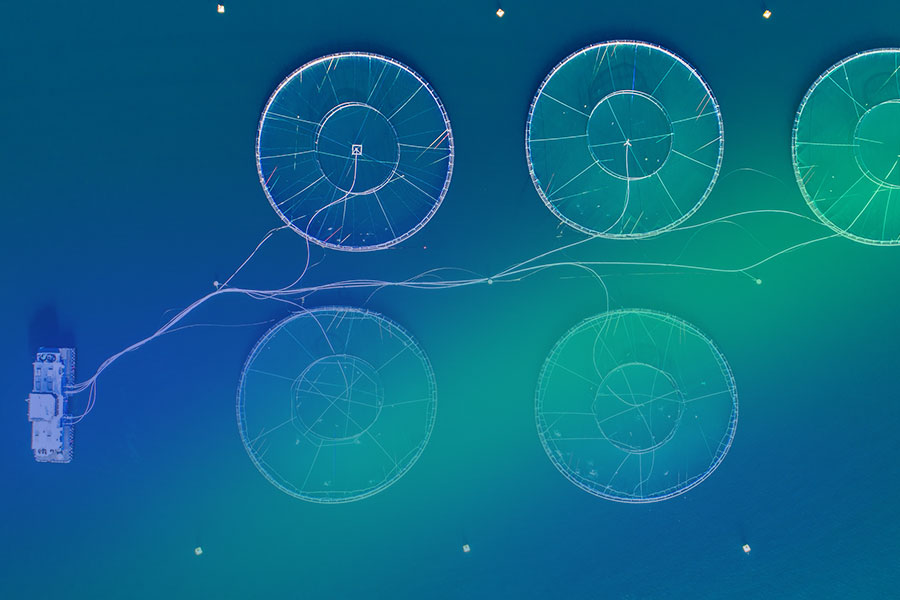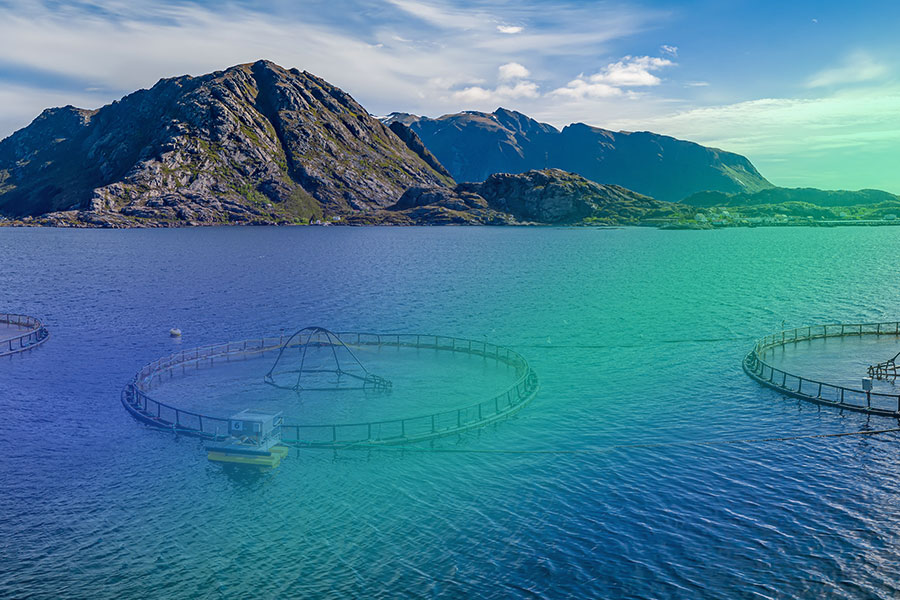Iliad Hackathon 2024
Digital Twins of the Ocean
Developing cutting-edge digital tools for integrating diverse data sources and constructing digital twins of the ocean to advance sustainable ocean management.
Iliad aims to create digital twins of the ocean by leveraging existing investments in blue economy policies and infrastructure. By bringing together a diverse range of stakeholders, Iliad is creating a collaborative environment that transcends boundaries. This inclusive approach not only enhances knowledge sharing but also fosters a collective effort towards ocean conservation and sustainable development.
Goal
The Iliad hackathon 2024 will unite interdisciplinary teams in developing cutting-edge digital tools for integrating diverse data sources and constructing digital twins of the ocean to advance sustainable ocean management.
Participants are free to choose their focus to reach the goal of the hackathon along the lines of the following themes:
- Digital twins of the ocean in action
- Fusing GenAI and digital twins
- Interoperability between digital twins
Objectives
The hackathon aims to meet the following objectives and is designed to draw a diverse, cross-disciplinary audience ranging from data scientists to subject matter experts:
- Advance the digital twin landscape: Transform pilots and concepts into functional digital twins of the ocean;
- Reusing and extending existing Iliad’s components, along with other libraries and technologies, to innovate in new ways.
- Leveraging federated data platforms, including HUB Ocean’s Ocean Data Platform to streamline the data supply chain to service twins;
- Improving technical capabilities in the exploration and manipulation of data, data science, modelling and working towards the long term operation, or commercialisation, of digital twin products and services.
- Demonstrate interoperability with other digital twin of the ocean initiatives such as EDITO-Infra, EDITO-ModelLab, BlueCloud, EmodNET, Destination Earth, Copernicus, and more.
Meet The Teams
Hackathon Winners
We’re thrilled to announce the winners of this year's Iliad Hackathon, where brilliant minds came together to create digital twins of the ocean and push the boundaries of ocean sustainability and innovation.
The jury commended all teams for their innovative use of technology, strong societal impact, and impressive demonstrations of their solutions, showcasing the power of digital twins to drive ocean sustainability forward.
1st: RAINDROP (blueOASIS)
RAINDROP took first place for its real-time modeling of sound pressure levels in marine environments. The team deployed its advanced acoustic digital twin on Ocean Data Platform, integrating various data sources, including those from EMODNET, Copernicus, and AIS, offering a powerful tool to monitor noise propagation in the ocean. Short video of the winning team below.
2nd: Oslofjord Twin (Institute of Marine Research (IMR), Norway, University of Oslo, OsloMet – Oslo Metropolitan University)
The Oslofjord Twin team developed a Digital Twin of the Oslofjord from scratch using sensor data and computational models, and computer vision. This project is designed to monitor the health of the Oslofjord and improve decision making for to turn around decades of biodiversity loss and poor water quality.
3rd: Aquaculture Risk Metrics (SINTEF Nord, SINTEF Digital)
Aquaculture Risk Metrics further enhanced their digital twin of aquaculture farms in Norway by adding two new risk metrics, harmful algae blooms (HABs) and jellyfish. HABs are responsible for an annual loss of 2% in the aquaculture industry and can kill off an entire farms fish in hours if not properly managed. The team showed how satellite data could be used to identify risks early to prevent such losses.
Special Awards:
Policy Perspectives: Jellyfish Joyride (University of Haifa)
The team demonstrated how to standardize citizen science data collection so that it can be integrated into digital twins of the ocean.
Sea Llama (@Marine Institute, Ireland) & Oslofjord Twin – Sea Llama applied a knowledge graph LLM unstructured marine data to allow non-experts to ask questions of a digital twin, while Oslofjord Twin's initiatives earned it a dual recognition.
Best Practices Integration: Aquaculture Risk Metrics (SINTEF Nord, SINTEF Digital)
Recognized for seamlessly incorporating industry best practices into their aquaculture risk assessment tools.
The Iliad Hackathon 2024 brought together experts and innovators from diverse fields, united by a common goal: to advance digital twins of the ocean and promote sustainable ocean management. Congratulations to all teams for their inspiring contributions!
Gallery






















Hackathon Participants
Hackathon Organisers
Bente Lilja Bye
Bente Lilja Bye has been a member of the GEO community since 2004 then as Research Director of the Norwegian Mapping Authority. She has been engaged both as representative in the GEO plenary, in committees and contributing to the GEO Work Programme. She has served on the GEO Program Board representing Norway bringing her expertise on the polar regions. Today, Bente runs a small research and consultancy company, BLB, focusing on transforming Earth observation data to information and knowledge for societal benefit. Bente supports the NextGEOSS data hub and platform operations particularly through capacity development and resource mobilization. Bente serves as Innovation Manager in ILIAD bringing her expertise on operational systems such as European Sea Level Service, development on tsunami early warning systems and more. Bente characterizes herself as a nature loving gadget geek and is frequently seen on various expeditions on land or ocean.
Arne-Jørgen Berre
Arne J. Berre is Innovation Director at NorwAI.ai and chief scientist at SINTEF Digital. He is the lead of GEMINI Big Data iSpace and involved in the Norwegian Nemonoor AI EDIH. He is the leader of the BDVA/DAIRO TF6 Technical priorities. He is the technical coordinator of the COGNITWIN project on Cognitive Digital Twins for the process industry and involved in Circular TwAIn and COGNIMAN for Manufacturing. He was responsible for the national IDS-based Norwegian Data Space project – MDS - Maritime Data Space. He is the scientific coordinator of the European Green Deal, ILIAD, Digital Twin of the Ocean project, and the AquaINFRA EOSC project and involved in the new Mission Ocean projects CLIMAREST and DTO-BioFlow. He is the lead of the Norwegian ISO SC42 AI group and involved in ISO SC41 IoT and Digital Twin, ISO/TC211 and OGC. He is co-chair of WG5 DTO Framework and architecture (Turtle) in DITTO (Digital Twins of the Ocean) - a Global Program of the UN Decade of Ocean Science for Sustainable Development (2021-2030).
Tom Redd
Tom Redd is the Ocean Governance Lead at HUB Ocean, a foundation with a mission to unlock the power of ocean data. Tom leads activities related to ocean restoration and governance. He is responsible for involvement in European activities and HUB Oceans role in the Iliad Digital Twin project. Previously, Tom has worked developing marine science funding programmes at a European level at the intergovernmental organisation JPI Oceans. His education is in marine science, policy, and law.
Sofia Parsadanyan
Sofia is Program Lead at the American University of Armenia, EPIC - Entrepreneurship and Product Innovation Center. Sofia has experience from Technology transfer and commercialization of the research done by scientists in Armenia, design and implementation of the process of market opportunities evaluation of researches in math and physics.
She has designed & launched an automatized service for getting information about more than 150 available resources for business development of SME’s that has been used by more than 2000 entities.
Henry Boeree
Henry is involved in multiple European projects and research initiatives focusing on satellite applications for disaster risk management, climate resilience & civil protection, as well as maritime topics:
- GEO-Academy, bringing innovative geospatial tools (EO, RS, GIS, etc.) to primary to upper seconday pre- and in-service teachers.
- ILIAD, creating digital twins of the ocean using a federated system-of-systems approach.
- Collaborating with EUSPA on a series of national workshops on satellite applications for disaster risk management.
Hackathon Webinars
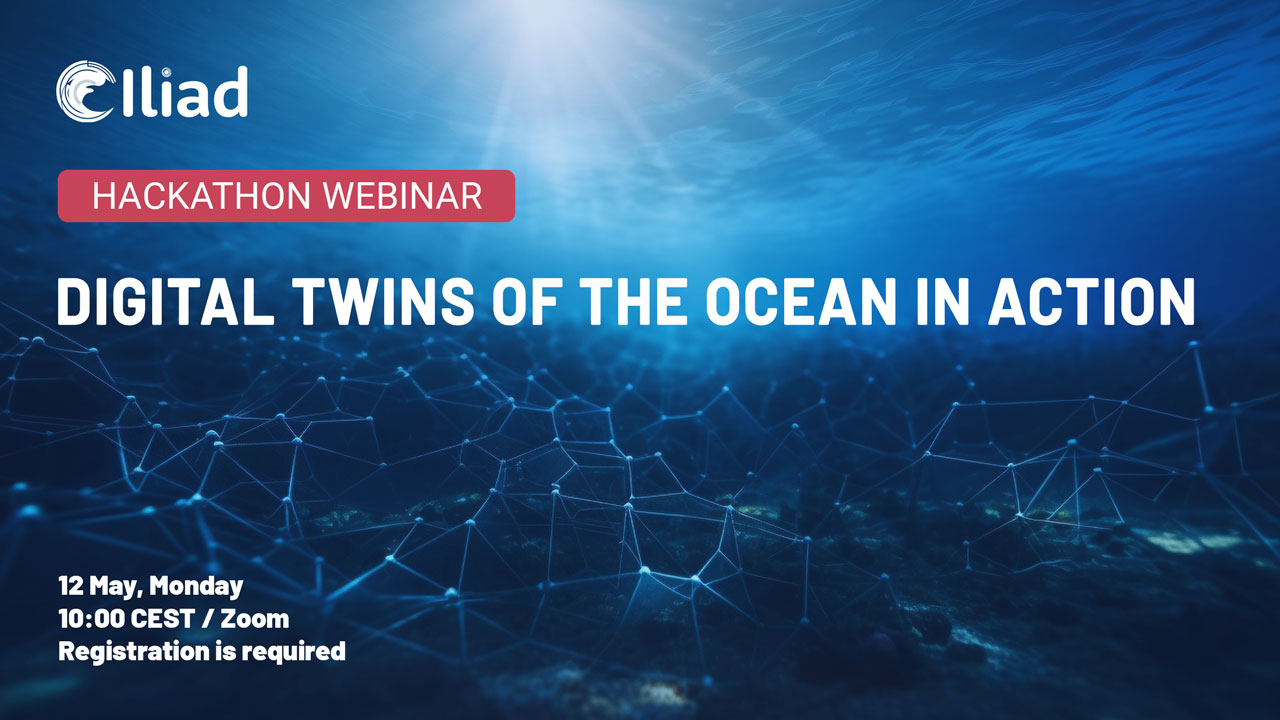
Digital twins of the ocean in action
In this inaugural webinar of the Iliad Hackathon, we delve into practical implementations of digital twins, both from the Iliad project and beyond. Our focus will be on leveraging digital twin technology to gain insights into ocean ecosystems, monitor environmental changes, and drive sustainable actions.
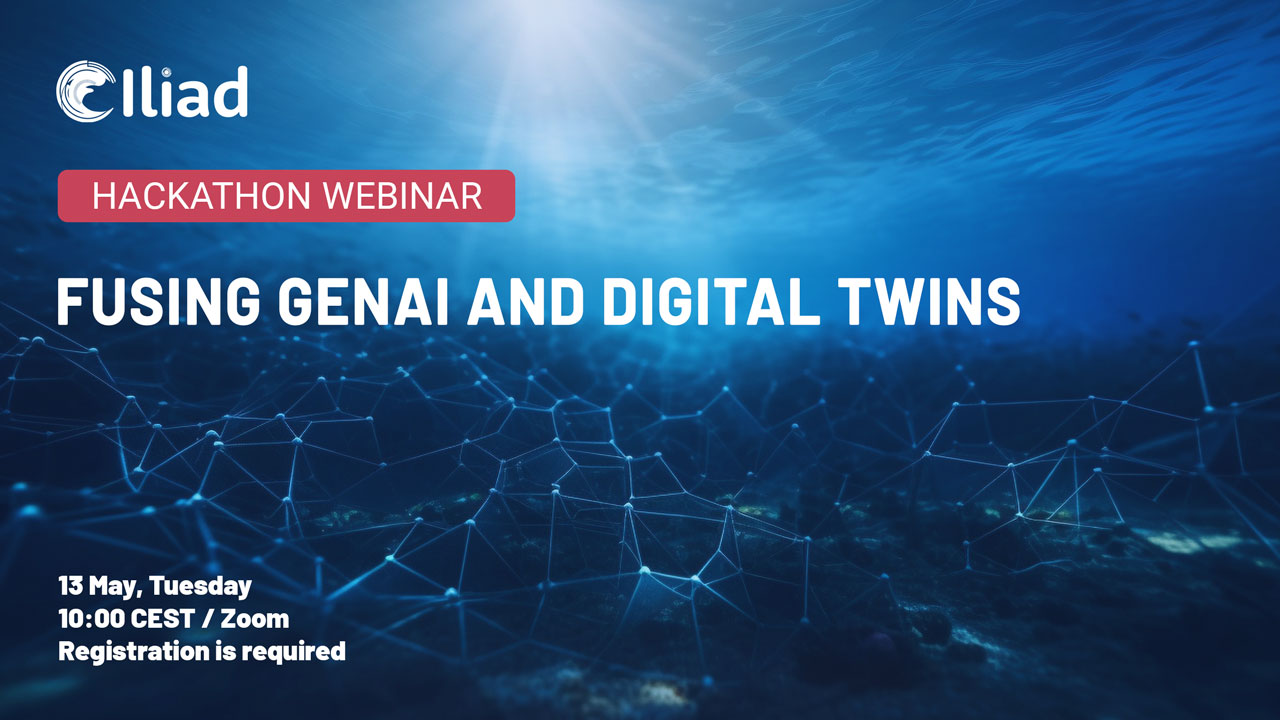
Fusing GenAI and digital twins
In our second Iliad Hackathon webinar, we delve into the exciting opportunities presented by fusing GenAI with Digital Twins of the Ocean. These powerful tools, such as ChatGPT, have the potential to revolutionise user interactions with DTOs, paving the way for novel use cases and transformative applications.
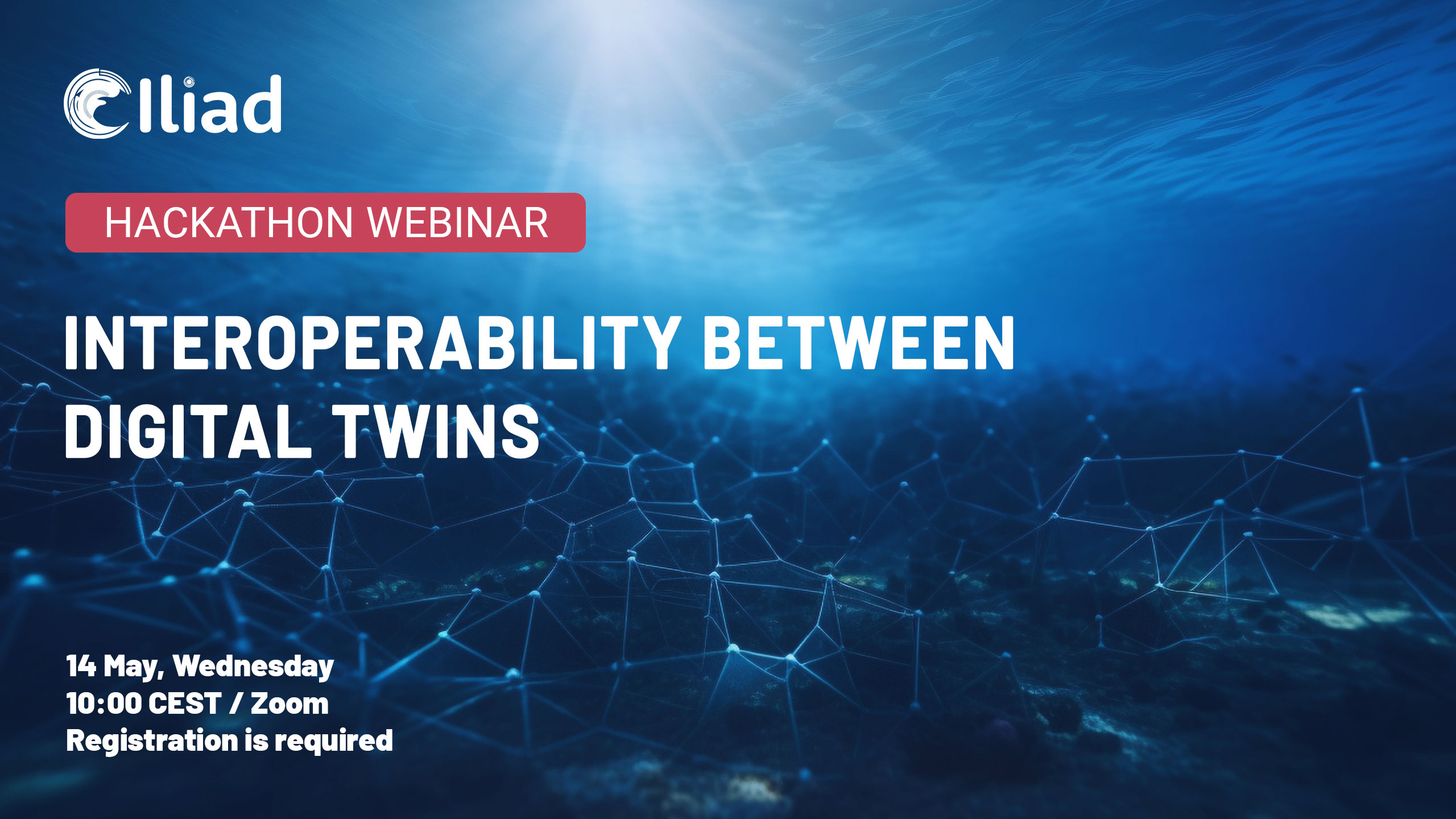
Interoperability between digital twins
The third webinar in the Iliad Hackathon series will address the important topic of interoperability. Interoperability is essential for enabling different ocean-related data sources to be integrated and for different digital twin applications to communicate and exchange information with each other. This session will focus on the practical steps DTO developers can take to promote interoperability.
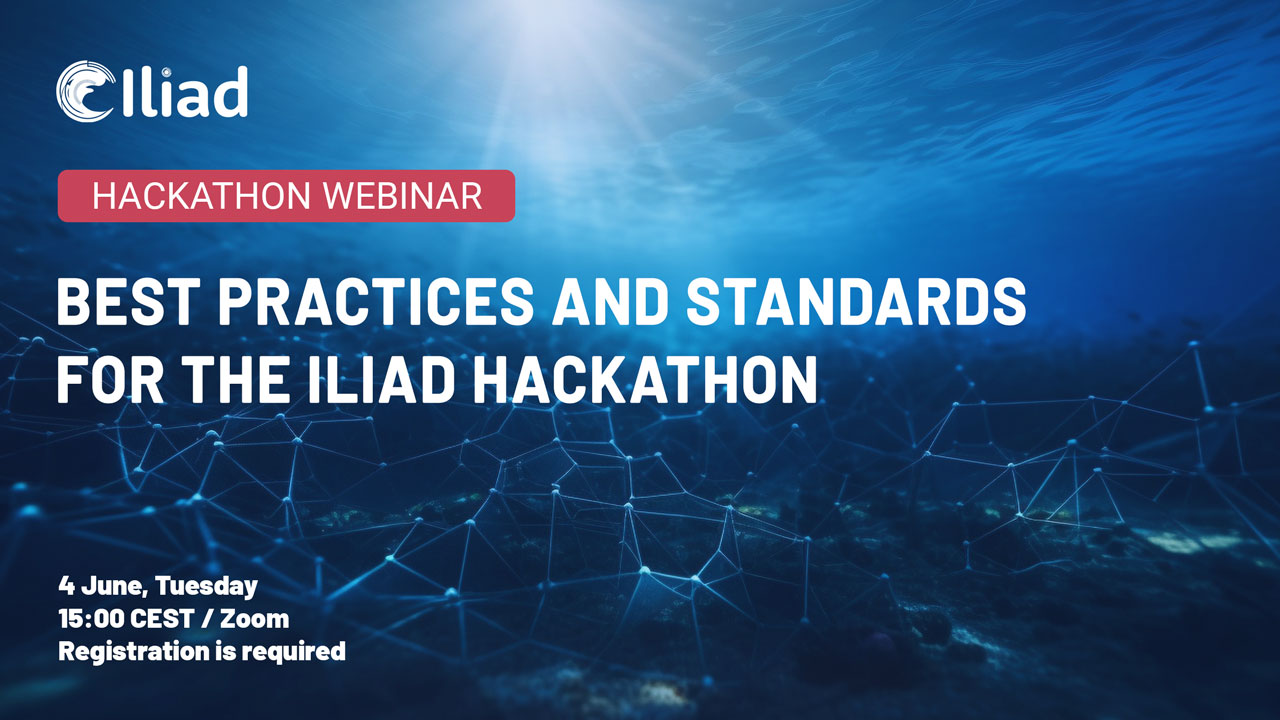
Best Practices and Standards for the Iliad Hackathon
Accelerate your hackathon project by adopting existing best practices and standards (BP&S) for data, models and products. Speakers will share their experiences and you will hear how to find and select BP&S and how you can apply them in your hackathon development.
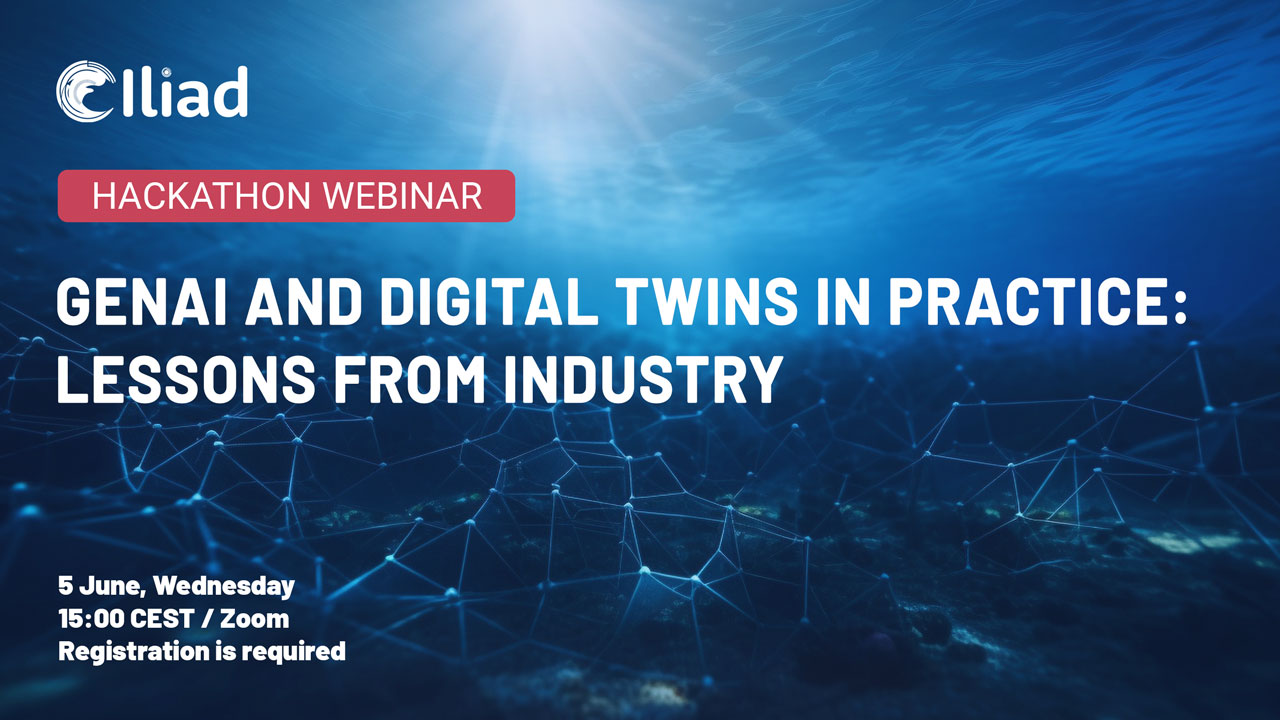
GenAI and Digital Twins in practice: lessons from industry
This webinar will present practical insights into developing and using Generative AI in the context of Digital Twins. Cognite has been developing an Open Industrial Digital Twin that delivers both real-time and complete historical data in one accessible GUI and API. Built on top of these twins are a comprehensive suite of Generative AI capabilities from industrial data management to autonomous operations, unlocking simple access to complex industrial data, increasing the efficiency of industrial workflows. Industrial Digital Twins require safe, secure and hallucination free Generative AI to provide accurate insights.
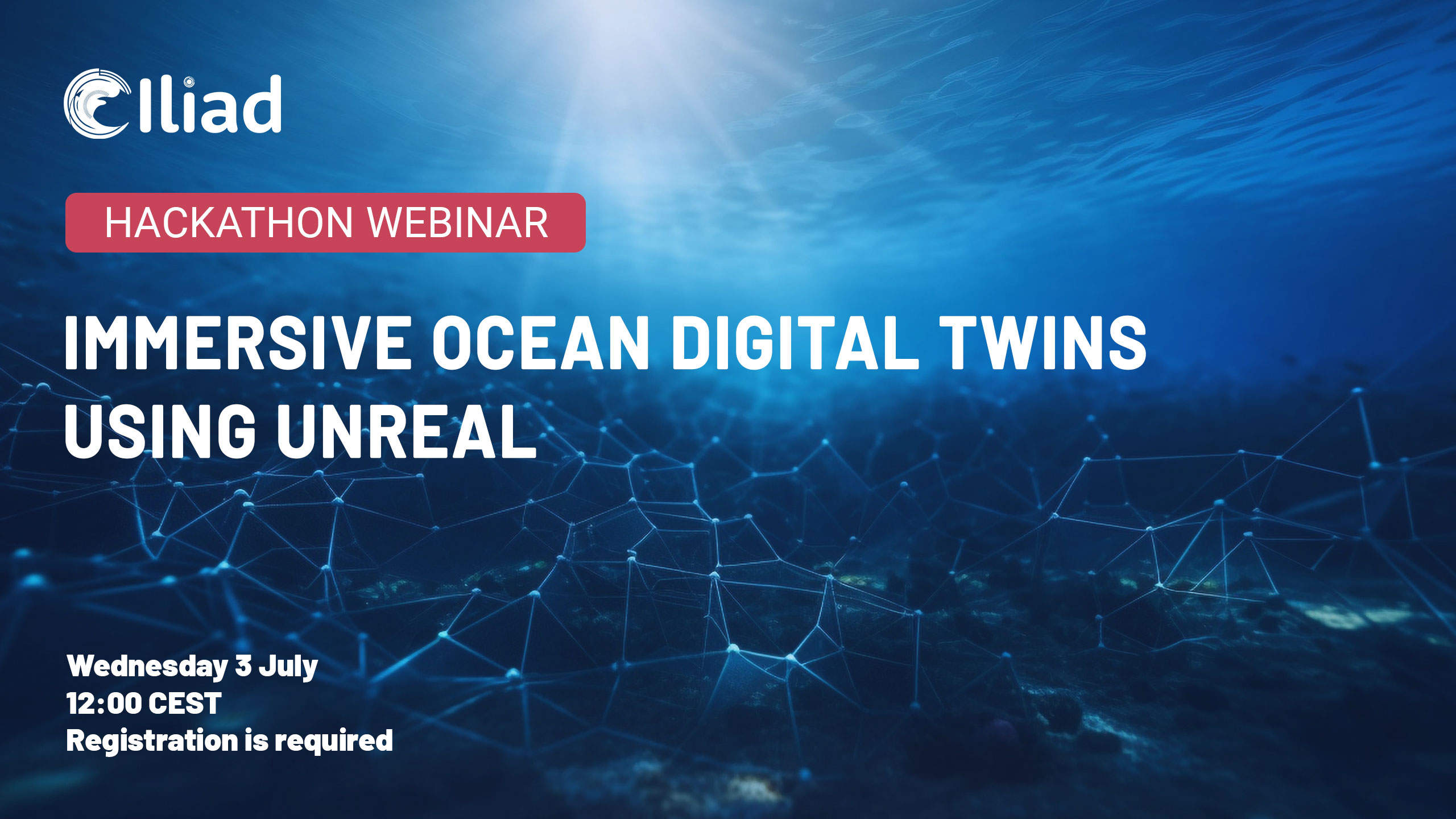
Immersive ocean digital twins using UnReal
This webinar will present the team developing a 3D Immersive Ocean platform using the EPIC Unreal engine. This virtual world boasts high-quality graphics and dynamic simulations of geophysical, natural, and man-made objects in the marine environment, such as waves, marine flora and fauna, ships, and offshore wind turbines. The virtual ocean world is automatically generated using an innovative AI technique called procedural content generation. This technique allows the virtual ocean world to be generated automatically based on a set of decision rules
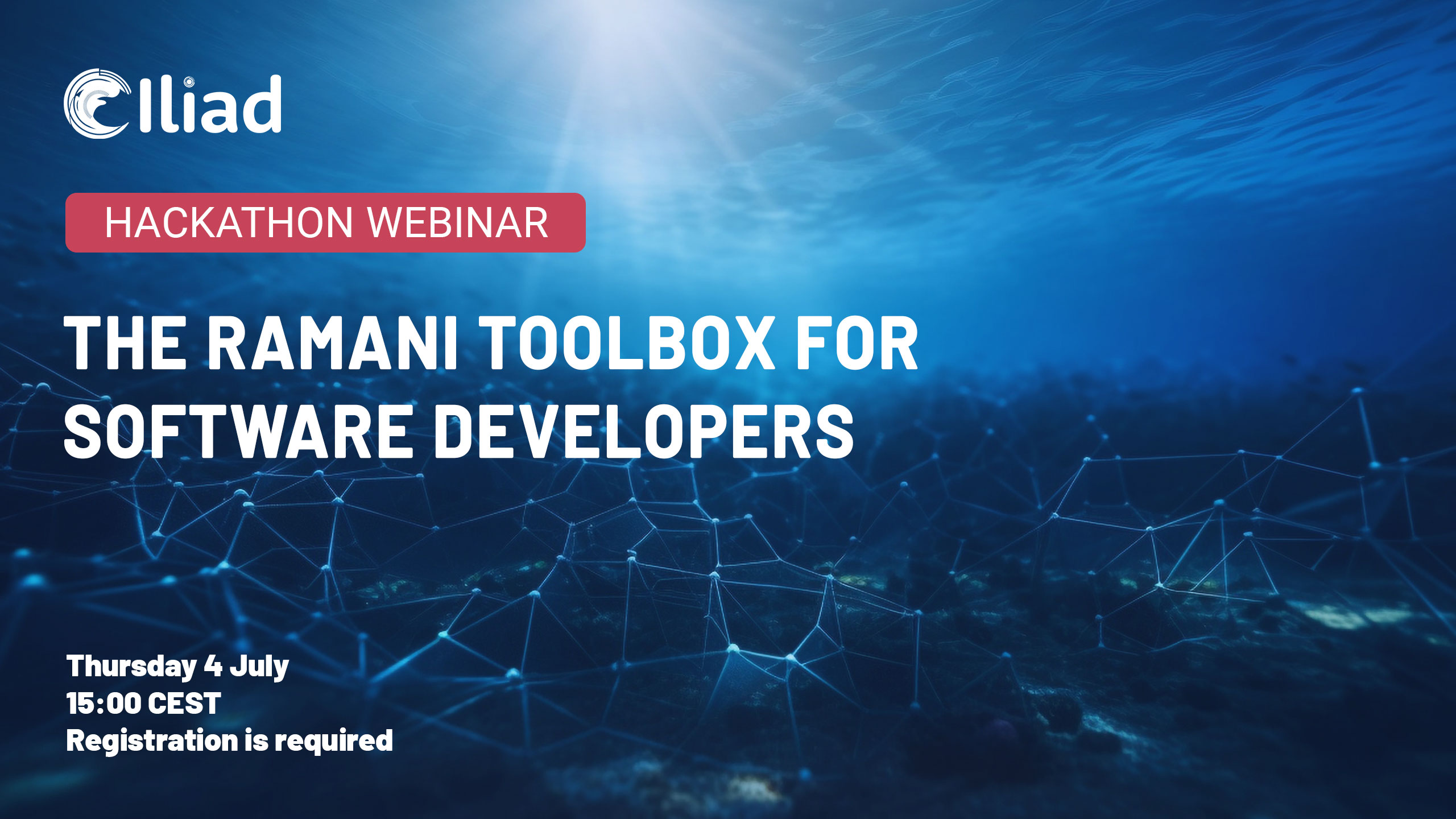
The Ramani toolbox for software developers
This workshop highlights the utility of the Ramani toolbox in various international competition events, such as hackathons and ideathons. As part of the Iliad project, we first introduced a semantic knowledge management facility called “SemanticFlow Knowledge Hub”, aka SemFlow in short. SemFlow uses semantic Knowledge Graphs to allow both Pilot team members, domain experts, and ICT specialists to register their knowledge on a common coordinate axis. SemFlow links to FlowCell, an online co-creation environment allowing thematic domain experts, IT developers, IoT hardware providers, EO experts to easily organize their online computational assets using a visual canvas.
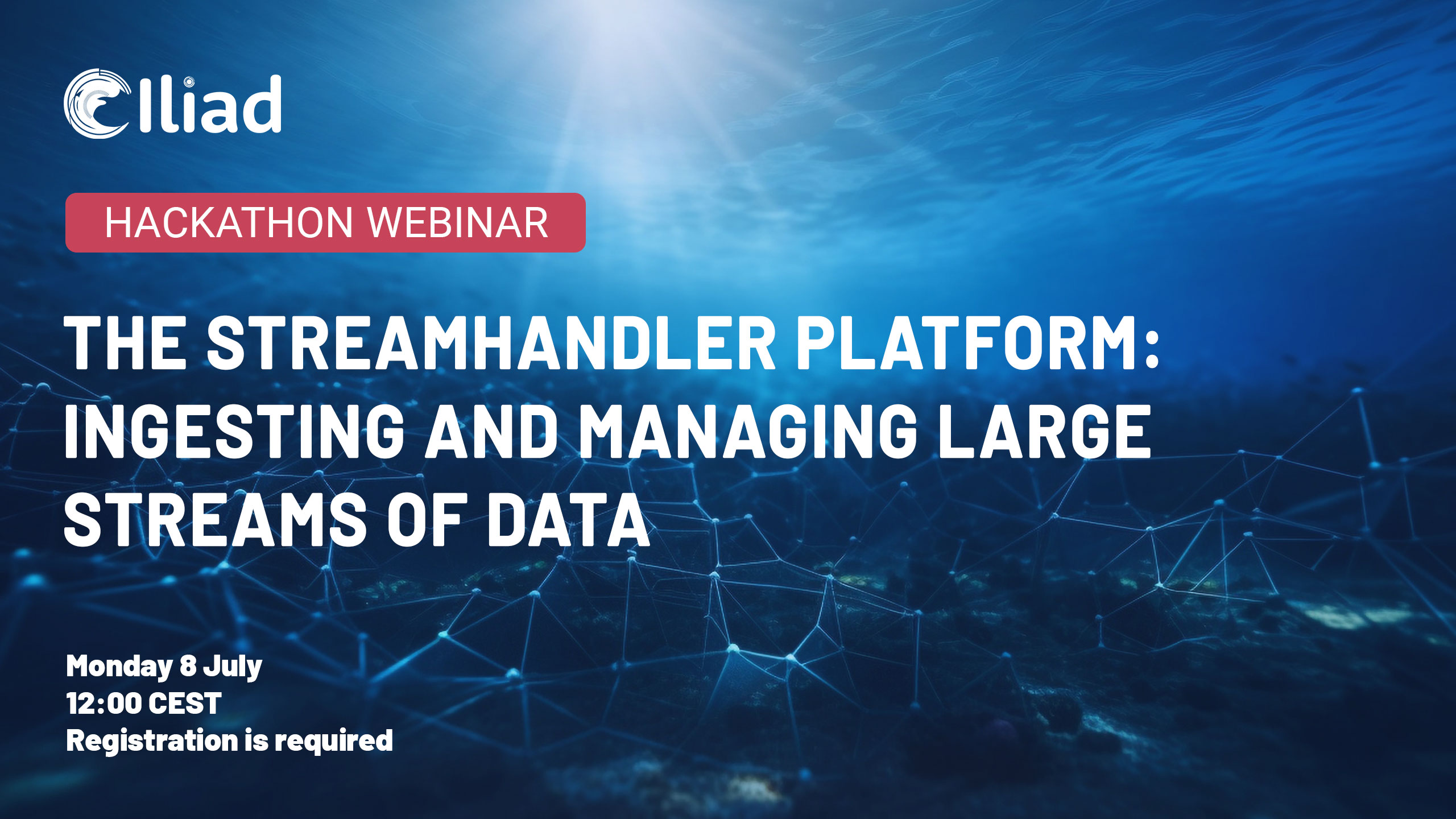
The StreamHandler Platform: Ingesting and Managing Large Streams of Data
In this webinar session, we will present a comprehensive overview of the StreamHandler platform, focusing on its architecture, design, and application in Iliad pilot projects. Attendees will gain insights into the platform’s capabilities and the technologies it supports. This presentation will explore how StreamHandler enhances operational efficiency and interoperability in data sharing from multiple external sources using near real-time streaming mechanisms and what it offers to users in various environments related to warning and alerting functionalities. The webinar includes a session providing useful guidelines and examples on how the users can interact and communicate with the platform.
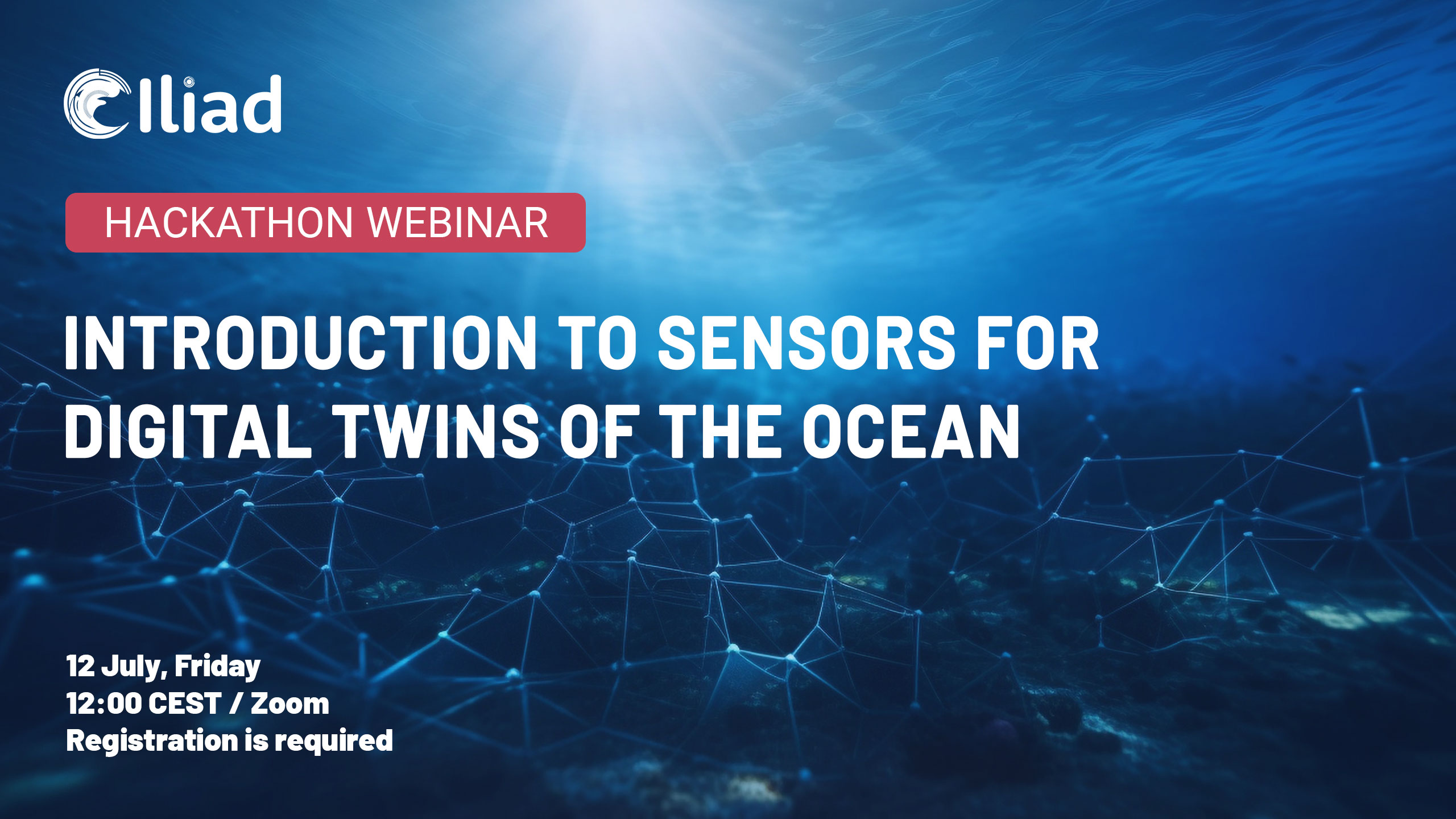
Introduction to sensors for digital twins of the ocean
Digital twins of the ocean requires a variety of data. Various sensors ranging from gliders and drifters to drones are all instrumental in providing the best virtual representation of ocean reality. In this webinar you will get an overview of sensors included in Iliad. You also will learn about the Wavy drifters and given examples of how they can be used both as data collectors and as engagement tool.
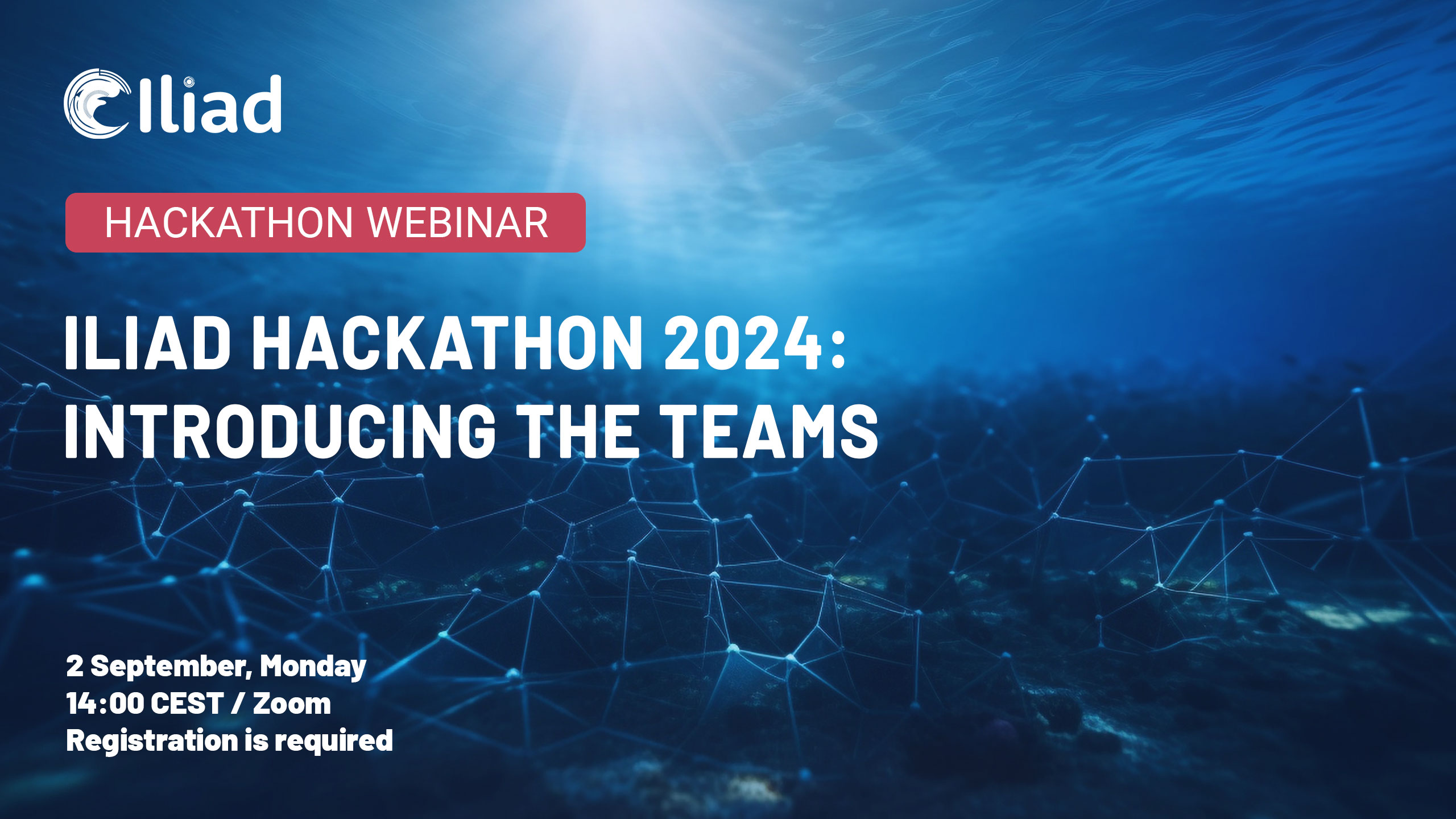
Iliad Hackathon 2024: Introducing the Teams
In this webinar, we will introduce the teams that will participate in the Iliad Hackathon 2024. The webinar will be held on Monday September 2nd, 2024 at 14:00 CEST.
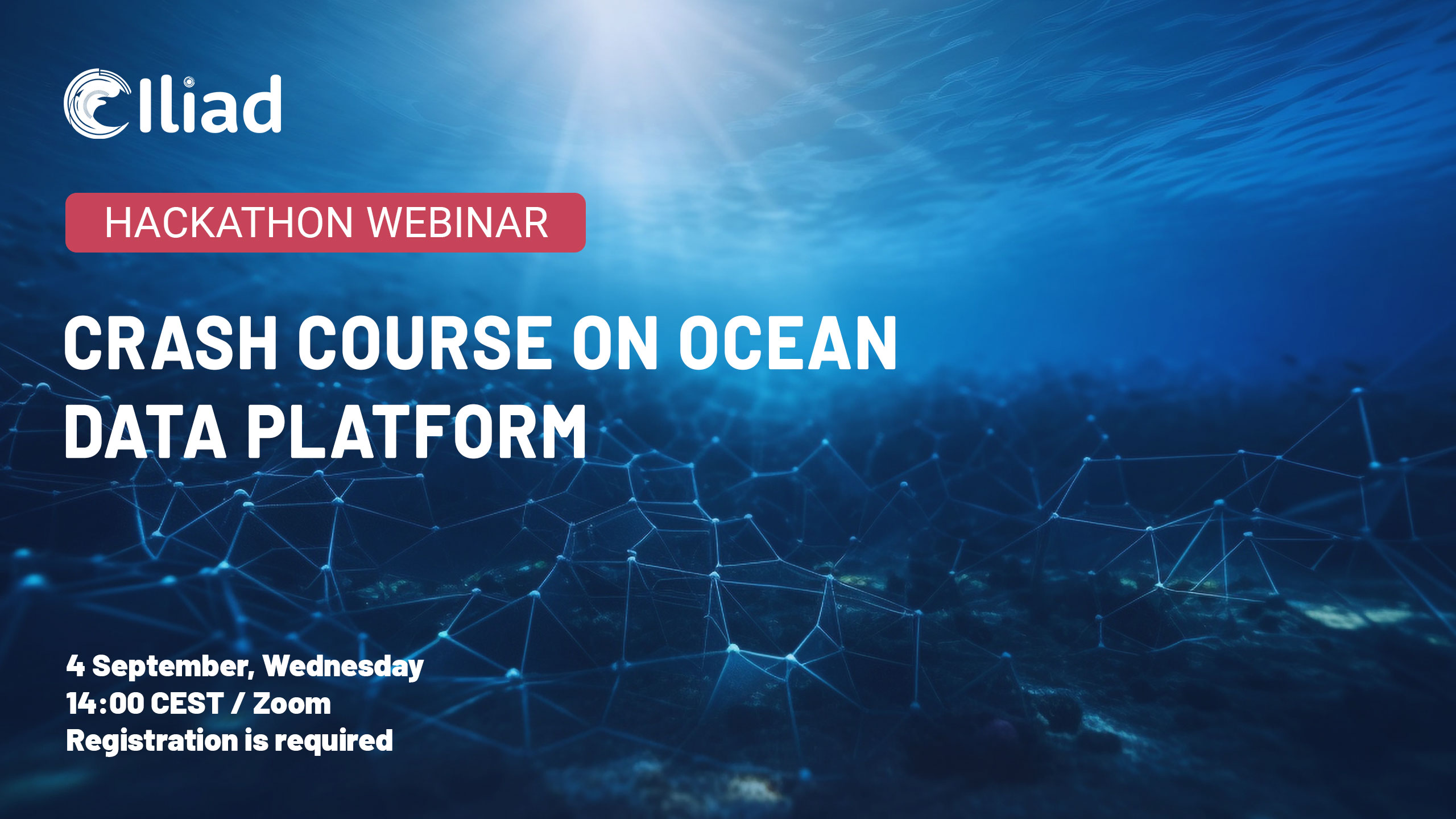
Crash Course on Ocean Data Platform
The Ocean Data Platform designed to be a one-stop-shop for ocean data, allowing users to access, visualize, and analyze data from a wide range of sources, quickly and easily, in a single cloud-based environment and by API. ODP will be made available to participants of the hackathon.
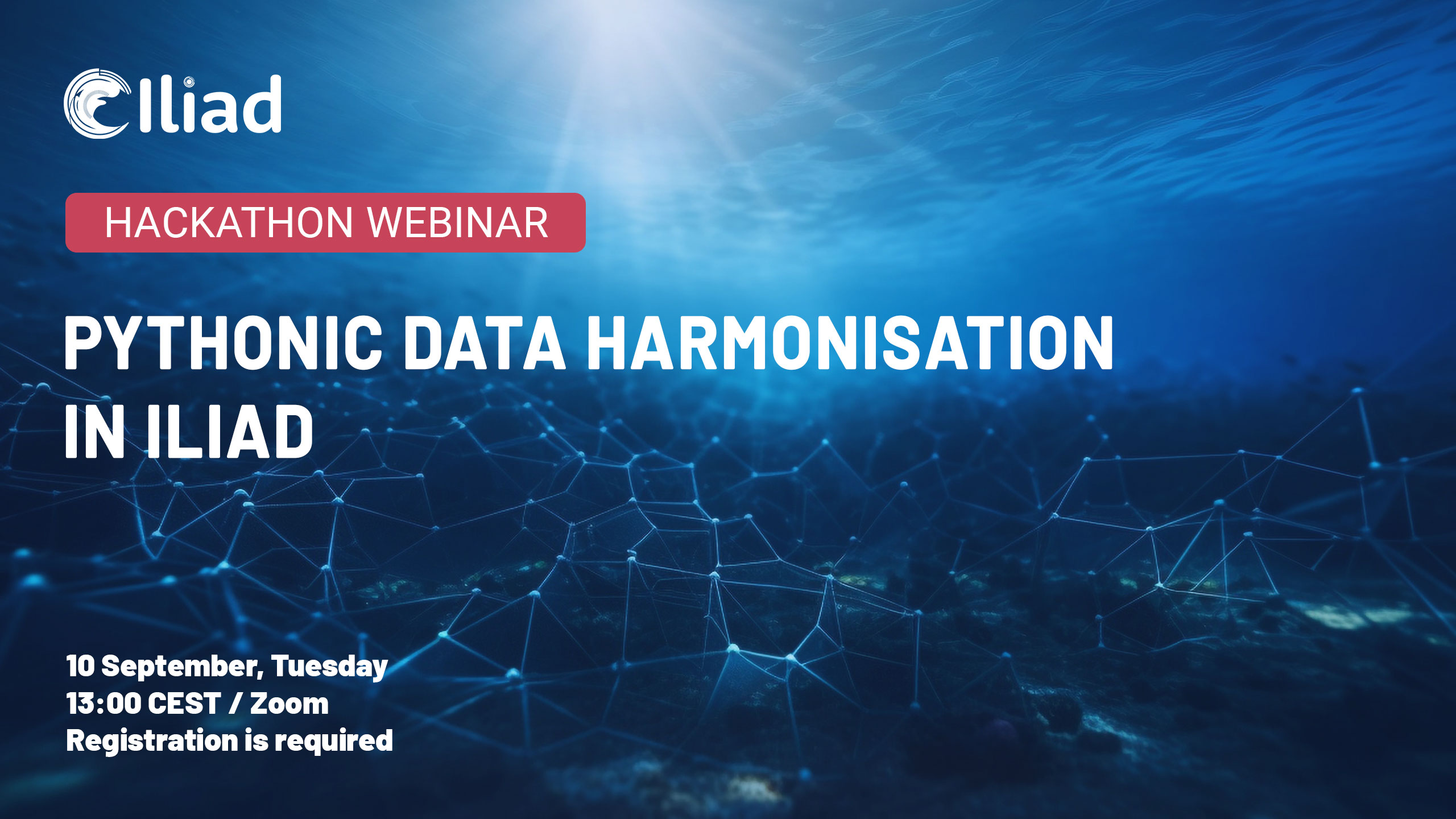
Pythonic data harmonisation in Iliad
Join us on Tuesday 10th September 2024 at 13:00 CEST, to explore semantic interoperability and ontologies, and how these concepts enable consistent data exchange across systems. We’ll provide a brief refresher on OIM, a key framework for data integration, followed by an introduction to SOSA, an ontology used for representing observations and measurements from sensors. The session will feature a Jupyter Notebook demonstration, showcasing Python functions for harmonising data, and a short introduction to Dagster. We’ll then walk through modifying the notebook to create a Dagster pipeline and deploying it for execution in a real-world scenario.
Iliad Hackathon Timeline

Entry Details
Teams
You can register as an individual and teams will be created with a minimum of 4 and a suggested maximum of 10.
Required skills
Whether you're a seasoned programmer, a subject area expert, a communication guru, or a UI/UX designer, we welcome participants of all levels and backgrounds.
Format
The Iliad hackathon is a hybrid hackathon consisting of a longer online period and an onsite period ending with an award ceremony.
Webinars
A series of educational and practical webinars will be held from mid-May to onboard and support hackathon participants in their online work and prepare for the physical event.
Physical event
The physical event will bring together selected teams in a final sprint to demonstrate digital twins in action.
Registration
Up to 30 participants will be invited to the physical hackathon and finals.
VISA
Please note that there might be certain requirements on visa for those traveling to Oslo from outside Europe. For those who need it a Letter of invitation will be provided.
Awards
Prizes will be awarded across the three themes and other categories.
Organizing team
American University of Armenia
BLB
Blue Lobster
dotSpace
Hub Ocean
IEEE
Spa/Rac
Contact: Tom Redd, HubOcean - tom.redd@oceandata.earth
